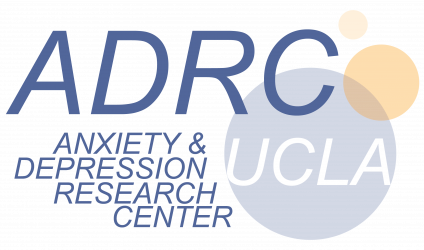This study has concluded and is no longer open for recruitment.
The Emotion Regulation study is funded by the UCLA Academic Senate. The goal of the Emotion Regulation study is to improve upon already efficacious therapeutic strategies for all of the anxiety disorders and evaluate ways of enhancing the long term outcomes of treatment across a broad array of measures of functioning. The Emotion Regulation study is designed to compare two different versions of behavioral therapy for anxiety disorders. The first version involves teaching methods for slowing physiological responding, changing erroneous thoughts about anxiety inducing situations, and modifying behaviors in order to learn to overcome fears of specific objects, places, or experiences, through exposure therapy. The second treatment version involves strategies designed to replace anxious physical responding and negative thinking with mindful and nonjudgmental observation, and shift behavior towards achieving life goals, again through exposure therapy.
Eligibility Criteria
Individuals who meet diagnostic criteria for any of the major anxiety disorders, Panic Disorder with or without Agoraphobia, Generalized Anxiety Disorder, Social Phobia, Obsessive Compulsive Disorder, Post-Traumatic Stress Disorder, and Specific Phobias, are eligible for the study if they are between the ages of 18 to 60, are English speaking, are not currently suffering from major medical conditions, and are either un-medicated or stabilized on medications for anxiety or depression.
Screening Procedures
Interested participants call 310-206-9191 to complete a phone screener for initial eligibility. If eligible, participants are scheduled for an in-person, no-cost, diagnostic evaluation (approximately 2-3 hours) at the UCLA Psychology Clinic. Referrals are provided when the diagnostic evaluation indicates lack of eligibility for the study. Eligible participants are randomly assigned to either one of the two treatment conditions.
Treatment Procedures
Treatment is conducted one on one, over 12 weekly visits (at the UCLA Psychology Clinic) and is followed by phone calls once a month for the next 6 months. Assessments are conducted prior to beginning treatment, at completion of treatment, 6 months, and 12 months later. These assessments include diagnostic evaluations, a battery of self-report questionnaires, behavioral observation, and physiological recording in a laboratory.
Fees
Treatment fees are on a sliding scale – based on income, for 12 sessions. There are no fees for any of the assessments (prior to treatment, at completion of treatment, and 6 months after treatment). Parking costs for each assessment are reimbursed upon request. In addition, participants receive $25 for follow-up assessments at post treatment and 6 months, and $50 for the follow-up assessment at 12 months.
Study Personnel Contact
For further information about this project, contact Taylor Harris at 310-206-9191. This study is conducted in collaboration with Georg Eifert, Ph.D., Chapman University, California and John Forsyth, Ph.D., State University of New York, Albany.
Principal Investigator: Michelle G. Craske, Ph.D.

